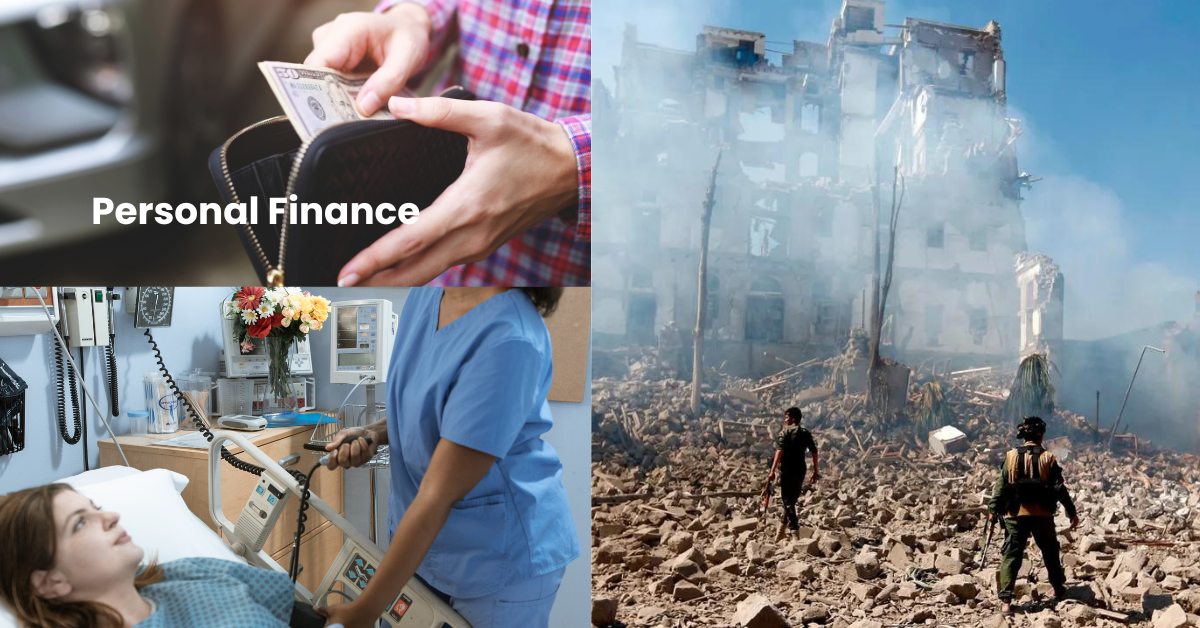Stranded in a war zone: War and war-like scenarios are exclusions – that is, expenses that insurance plans would not cover – and, in any event, only government-operated evacuation flights are likely to be permitted to operate under such conditions, according to insurers.
The growing conflict in the Middle East between Israel and the Palestinian militant group Hamas has stranded numerous foreign visitors, including Indian students, employees, and tourists.
The trapped Indian people are assumed to have obtained international travel insurance coverage before leaving the country, but these policies often exclude coverage for war and war-like scenarios such as invasion, insurrection, and civil war.
For example, if a traveler returns to India to avoid hostilities or is hospitalized after being injured in a rocket attack, the travel insurance policy will not cover the evacuation and treatment costs.
Insurers are increasingly hesitant to issue new travel plans to those planning to visit Israel in the near future. “The government has issued a travel warning, and due to the risks, a trip to Israel will not be covered by travel insurance.” We can no longer stop people from doing so. purchasing plans because some would have done so well in advance, while others might acquire travel policies with worldwide coverage (which could include Israel). Even in such circumstances, medical and travel annoyance claims (such as lost passports and bags) will be denied,” says Nikhil Apte, chief product officer for Product Factory (Health) at Royal Sundaram General Insurance.
Medical evacuation coverage is included in most travel insurance policies, although it is ineffective in instances like these.”That clause is applicable if a traveler who is covered under travel insurance were to fall sick and would need to be brought back to India for further treatment,” according to him. When the expense of treatment in the destination country is projected to be higher than in India, or her interests are likely to be better served in the country, the policyholder is airlifted.
Some insurance, like the foreign travel policy from ICICI Lombard, also provides political risk and disaster evacuation coverage. War is excluded from coverage under this policy as well, but when the Russia-Ukraine crisis broke out in February 2022, the business had examined evacuation claims—including the reimbursement of flying costs—under its political risks and catastrophic evacuation coverage.
Additionally, the government will always handle evacuations. It is improbable that any conflict-affected nation will allow chartered flights to help with evacuation; only government-operated flights may be permitted to carry out such evacuation operations. In any event, travelers should not be concerned about returning to India in such situations.
The federal authorities could then be able to arrange evacuation just as far as a safe location that is near the hostile nation. Several nations are still sending nationals to Cyprus for protection right now. The price of their trip from Cyprus to their home country is on them. Due to the operation’s connection to a conflict, evacuation costs in this case will also not be covered, according to an insurance representative who wished to remain anonymous.
payment for hospitalization due to illness
But what if a visitor becomes stranded in a war zone and acquires, say, malaria, necessitating hospitalization? “Ideally, travel insurance policies should cover such expenses if the policyholder falls sick and has to go to the hospital,” says Bhabatosh Mishra, director of underwriting, products, and claims at Niva Bupa Health Insurance.
Your claim is approved as long as your treatment is not related to any pre-existing ailment. However, treatment costs for injuries experienced during disputes will not be covered. In addition, in a hazardous environment, the ability of network hospitals or healthcare partners in the destination nations to offer services will be critical.
Students and travelers in conflict-affected countries should contact their insurers and partners to learn more about coverage and exclusions. Many people do not read the terms and conditions in full, and while some do, it is important to call the insurer for clarification on coverages, especially in the case of war-like scenarios.
“Communication lines may not always be open in a fluid situation.” As a result, call your insurer and check about any potential restrictions for, say, cashless hospitalization due to any ailments. Get the important facts ahead of time. “Also, keep the Indian embassy updated on your whereabouts,” Mishra advises.
If a traveler’s policy covers evacuation due to political dangers, she should check to see if specific advice to evacuate is covered by her coverage. While only governments carry out evacuations, insurance firms may pay for economy class flying return to India if visitors face political threats.





